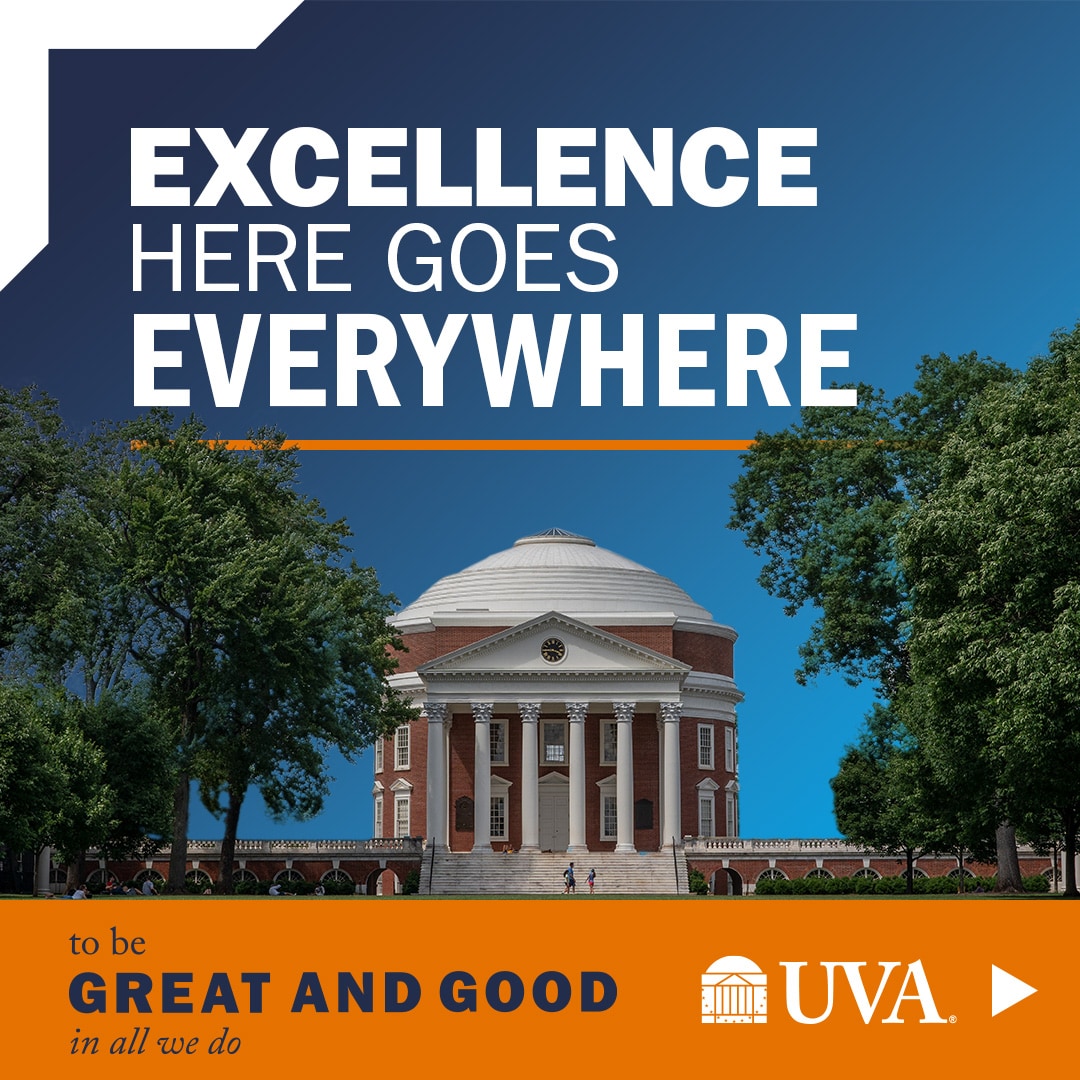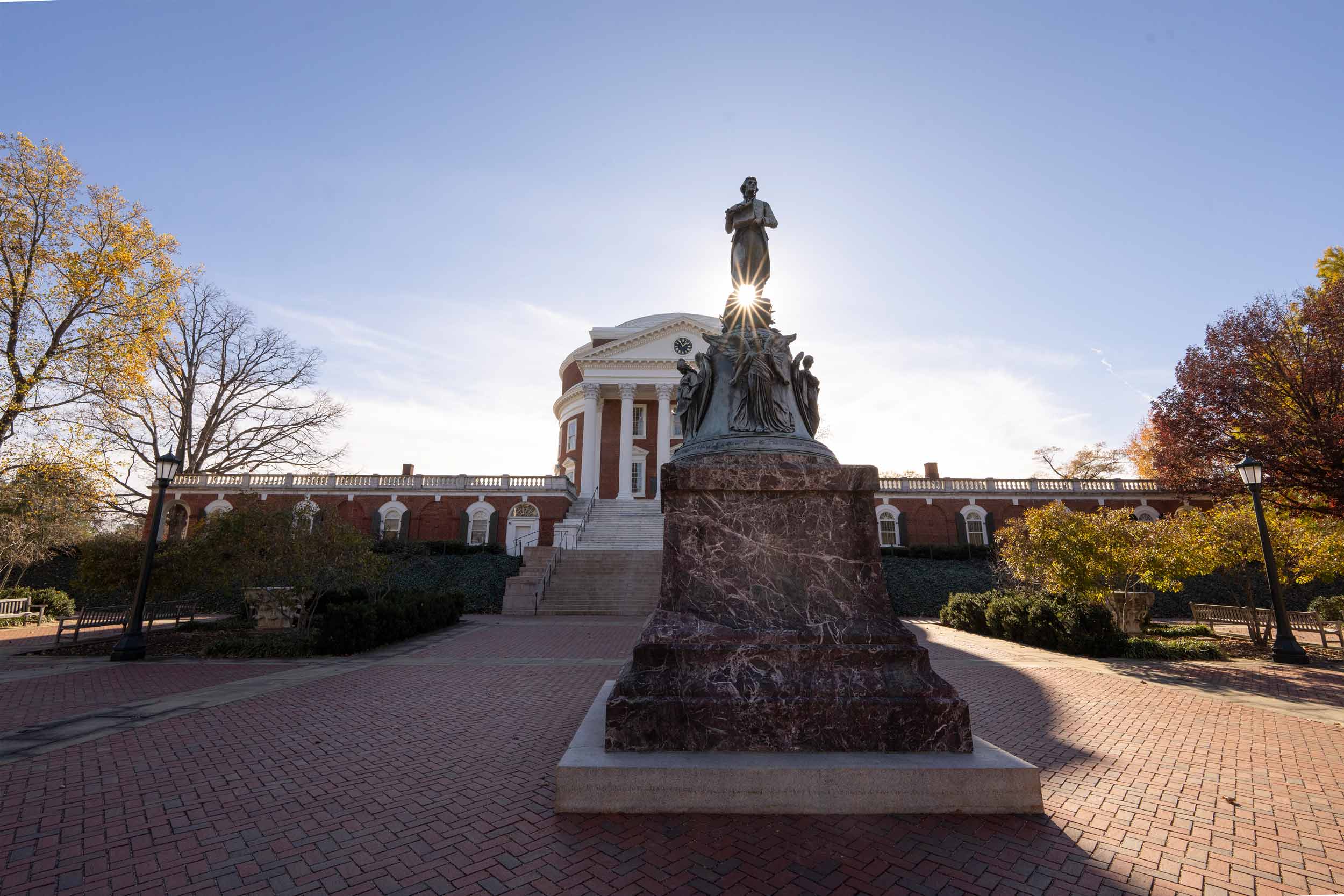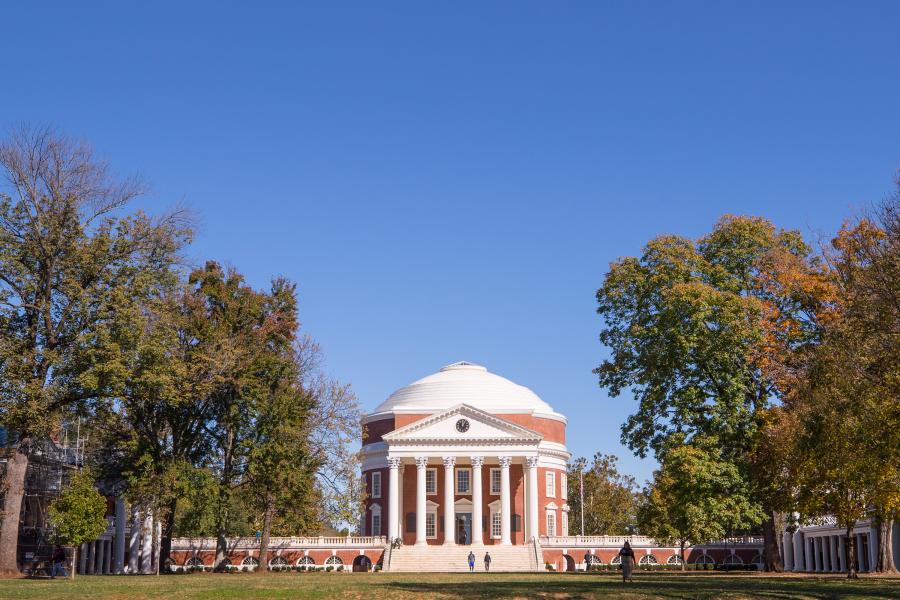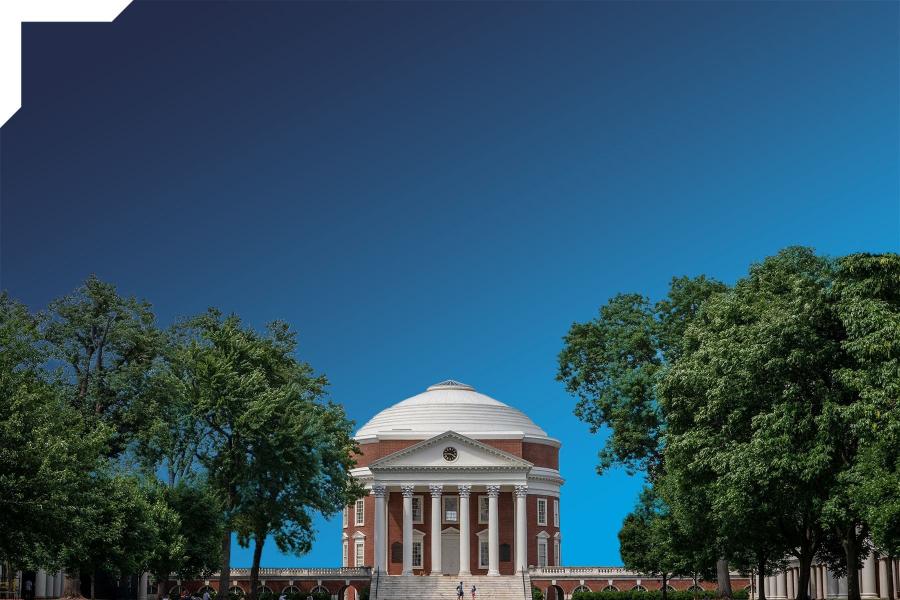“The Honor the Future campaign has been incredibly successful in raising scholarship funds to ensure UVA is accessible and affordable for the most talented students, and I’m delighted that more Virginia families will benefit,” Ryan said. “My thanks go to our generous alumni and supporters who have made this possible.”
Key components of the AccessUVA expansion include:
- Virginia families with an income of $50,000 or less will receive grants and scholarships that equal or exceed tuition, fees, housing and dining. Previously, the maximum family income level for such aid packages was $30,000.
- Virginia families with an income of $100,000 or less will receive grants and scholarships that equal or exceed tuition and fees. The previous income threshold was $80,000.
- Virginia families with an income of $150,000 or less will receive at least $2,000 in need-based grants. The new income level is an increase from $125,000.
“Our mission is to welcome talented students from all walks of life, and these expanded grants and scholarships will help us do just that,” Vice Provost for Enrollment Stephen Farmer said. “Once Virginians from middle- and lower-income households earn admission to UVA, these scholarships will make it possible for them to join us. When they do, they’ll make everyone around them better.”


UVA established the AccessUVA financial aid program in 2004 as a commitment to open the University’s doors to more students with different backgrounds and to ensure that family income constraints would not prevent any qualified student from gaining admission and attending UVA.
During the following years, UVA as a result grew more diverse in the breadth of students who applied for admission and who enrolled to attend. Family need for financial aid increased during that time as well, and today some 35% of undergraduates demonstrate financial need.
During his inaugural remarks as UVA’s new president in 2018, Ryan formalized the commitment to providing grants for tuition and fees to Virginians with family income under $80,000; and grants for tuition, fees, room and board for in-state students from families with income under $30,000. Since then, inflation has increased the pressure on households, and the federal poverty threshold also has increased.
UVA will continue to cap need-based loans over four years at $4,000 for low-income Virginians, and at $18,000 for other Virginians with need. Loans for non-Virginians with need are capped at $28,000 over four years. Two-thirds of UVA undergraduates earn their degrees without incurring any need-based loan debt.
Soon after his arrival on Grounds, Ryan led the development of the “Great and Good” strategic plan that provides a blueprint for UVA to become the best public university in the nation by 2030. One of the plan’s strategic priorities commits to significantly expanding UVA’s financial aid program to enable more low- and middle-income students to attend, and to focus on efforts to attract more first-generation and underrepresented students. Ryan himself is a first-generation student who earned his undergraduate degree from Yale University and a law degree from UVA.
During the current academic year, more than 17% of UVA’s nearly 4,000-member first-year students are first-generation. Also this year, 16.4% of the class qualified for federal Pell Grants, compared to 11% two years ago.
As student need and costs have increased, the University has allocated significantly more funds over the years to maintain its commitment to student access and affordability. During the 2022-23 academic year, UVA awarded approximately $179 million in need-based financial aid from all sources to undergraduates through AccessUVA.
Ryan said the program expansion announced today will be covered entirely by philanthropic funds and will not use any tuition dollars. That continues a trend of dramatic increases in the role of philanthropy in meeting student financial need.
For example, the Bicentennial Scholars Fund combines philanthropy with matches from the University’s Strategic Investment Fund, aggregating more than $588 million for permanently endowed scholarships. More than 540 endowed scholarship funds have been established across the University since the Bicentennial Fund was created.
These initiatives and others in support of ensuring access and affordability have consistently earned UVA national recognition. Princeton Review designates UVA as the No. 2 Best Value public university in the country and the No. 1 public institution for financial aid.





